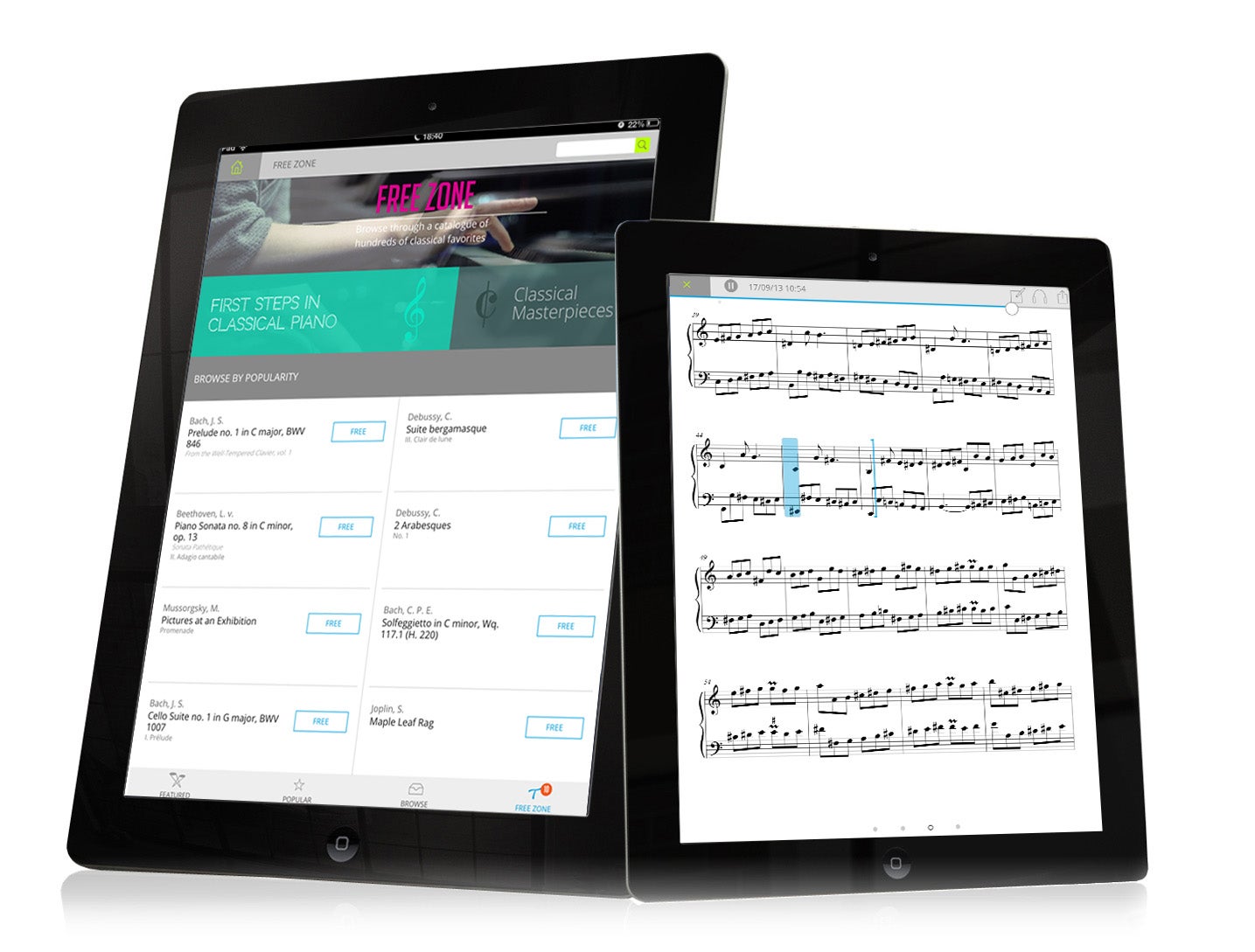All apps should be as brilliant as this Israeli sheet music app
It’s the rare app that feels truly innovative, anymore. But one worth paying attention to is Tonara, a sophisticated piece of software from an Israeli company of the same name.

It’s the rare app that feels truly innovative, anymore. But one worth paying attention to is Tonara, a sophisticated piece of software from an Israeli company of the same name.
Like dozens of other apps, it offers digital sheet music, so musicians can keep their libraries on one device rather than several fraying pamphlets. But unlike its competitors, Tonara takes advantage of the astonishing power packed into an iPad, for which it is specifically designed, and in doing so sets a model for app development well beyond the world of music.
Tonara doesn’t expect its users simply to follow the tempo they set. Instead, it uses the iPad’s built-in microphone to listen to the music, even if there are multiple instruments playing, showing the musician where she is at any given time—and where she should be.
The most obvious benefit of this feature is that it turns the page only when the player is ready. But more importantly, that feature allows musicians to review their practice sessions after each piece of music, giving them a better idea of where they hesitated or went wrong. It also lets musicians annotate the generously spaced sheet with notes, allowing easy sharing between students and their teachers.
Tonara’s new CEO, Guy Bauman, estimates that some 6 million children are currently learning how to play the piano in the United States and another 50 million or so in China. The combined global music education market is worth billions, he says, yet no company dominates the market. The industry is mostly made up of private schools and teachers, and the sheet music industry has failed to take advantage of technology. Tonara wants to step into that gap.